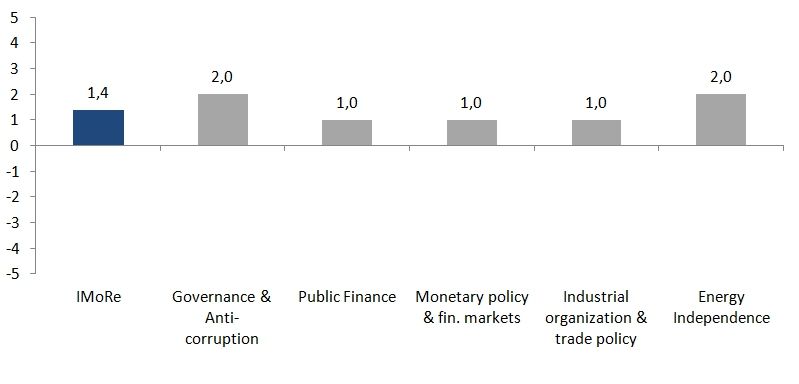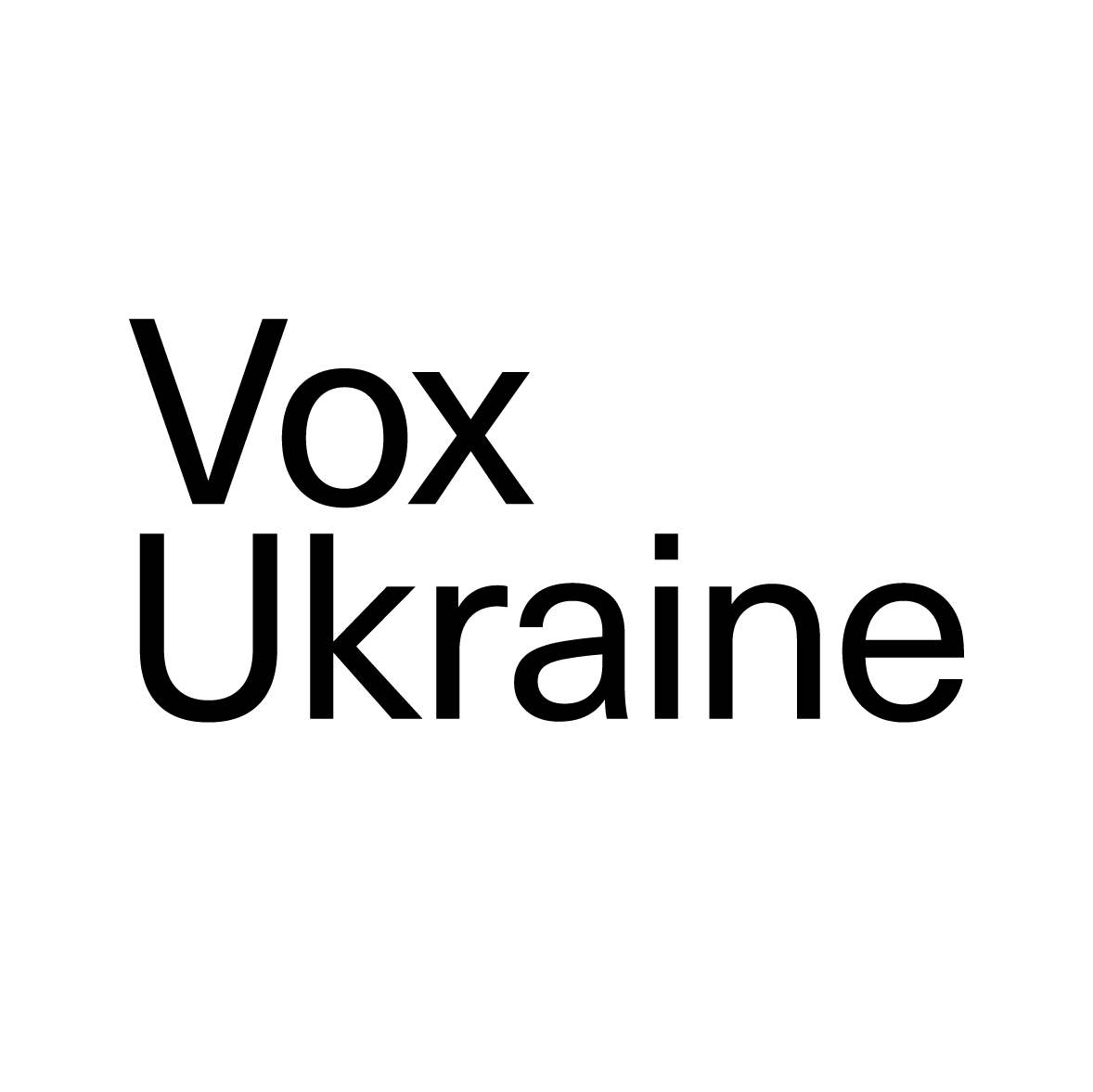Reform Index aims to provide a comprehensive assessment of reform efforts by Ukraine’s authorities. The Index is based on expert assessments of changes in the regulatory environment in five areas. Reform Index value for the 27th monitoring period (January 11-24, 2016) stood at +1.4 points out of the possible range from -5.0 to +5.0 points.
The greatest achievements were registered in anti-corruption sphere in this round, though experts note that the effectiveness of the adopted regulations will depend on the willingness of the authorities to implement them.
Chart 1. Reform Index dynamics

Chart 2. Reform Index and its components in the current round

Governance and Anti-Corruption sector had the largest number of positive developments first of all thanks to anti-corruption component. The sector score constituted +2.0 points. In particular, the decision to conduct all government procurement of medical drugs through international organizations (the CMU resolution 1396-р of 04.11.15) received +4.5 points, of which +2.75 points in Governance and Anti-Corruption and +1.75 points in Public Finance sectors.
Two more events received +4.0 points each. The first is the CMU decree 1180 of 16.12.2015, which aims to improve the procedure for competitive selection of managers of public enterprises. Experts positively evaluated the development as a step towards corruption reduction and improvement of the management of state-owned enterprises. At the same time, experts stressed that the success of the reform will depend on the quality of implementation, pointing to the constant scandals with the appointment of new managers of state enterprises. In particular, Oleksandr Zholud from ICPS notes that this decision “does not address the critical issue of the negative experience of permanent appeals against appointments in courts.” However, it simplifies and accelerates the competition procedure.
Introduction of requirements for non-bank financial groups to submit information about their activities and the owners to the National Commission for State Regulation of Financial Services Markets (the commission resolution 2724 of 12.11.2015) received +4.0 points as well.
Experts gave +3.0 points to approval of the licensing conditions of railroad transportation of passengers, dangerous goods and hazardous waste (the CMU decree 1168 of 9.12.2015). Veronika Movchan of IER said:
“The pluses [of the regulation] are elimination of duplication of functions [of licensing authorities and state supervision and control] and implementation of technical regulations. The risk is that qualification requirements may be a limiting factor for market entry.”
The law on the National Bureau of Investigation (794-VIII of 12.11.2015) which will investigate crimes of senior government officials and employees of the newly formed anti-corruption agencies scored +2.5 points. Although the law was adopted by the parliament in November, the President signed it only recently.
As for reforms in other areas, the Energy Independence sector received +2.0 points for unification of Ukrainian legislation on the security of natural gas supply with the European one. Namely, the Rules on the safety of natural gas supply were approved (the Ministry of Energy and Coal Industry order 686 of 02.11.2015). Progress in each of the three other sectors – Public Finance, Monetary Policy and Financial Markets, as well as Industrial Organization and Trade Policy was estimated at +1.0 point.
Reform Index aims to provide a comprehensive assessment of reform efforts by Ukraine’s authorities. The Index is based on expert assessments of changes in the regulatory environment in five areas:
- Governance and Anti-Corruption
- Public Finance and Labor Market
- Monetary Policy and Financial Markets
- Industrial Organization and Foreign Trade
- Energy Independence
For details please visit reforms.voxukraine.org
Chart 3. Value of Reform Index components and number of events January 11 – 24, 2016

Main media partner Project partners

Attention
The authors do not work for, consult to, own shares in or receive funding from any company or organization that would benefit from this article, and have no relevant affiliations



